Day one of the conference over and already I feel limp as an old pile of carbon paper. Eight hours, five sessions… so much passed over, unseen, unheard, unread. A few Canadian writer friends emerging from the 4000 faces: Eunice Scarfe, Caterina Edwards and Aislinn Hunter.
My first session was Formal Play in Modern poetry, a group of young poets giving papers. Bryan Penberthy (or, oh lordy was it Brian Spears?) talked about attempting to harness persona for a book-length sequence of Robert Johnson poems. Listing Anne Carson’s Autobiography of Red and Michael Ondaatje’s Collected Works of Billy the Kid among his models, he explained how he eventually stopped trying because he felt he was imposing his voice or his idea of Johnson on his subject. “My voice is my voice,” he said, “and I have a hard enough time telling my own story without channelling someone else.”
I flew the considerable length of two considerably long buildings to find Bird-Witted: Birds in Modern Poetry, where there were many allusions to Elizabeth Bishop and readings of her poems “The Sandpiper” and “Little Exercise”. Michael Sowder explained some of the reasons genus corvus (crows, ravens) had populated his poetry for many years; for example because corvus is sacred to Apollo, god of poetry. The panel’s own eccentric poetry god Gerald Stern warbled his way to the podium on some old bird tunes, “Bye, Bye Blackbird” and “White Cliffs of Dover” among them. He read a couple of poems on his bird of choice, the cardinal.
Back I galloped to my original starting point, where I learned about the Academy of American Poets‘ survey of poetry reading in USA. The report has yet to be released, but we learned some surprising facts, for example that current readers of poetry are more involved in all leisure time activities except watching television than are readers of things other than poetry. They are also more socially engaged than non-poetry readers, so the myth of the poetry lover as lonely weirdo is incorrect (phew!). The man from the NEA told us about its survey on involvement in the arts (not just poetry) which found that less than half – 46% – of all US adults have read anything at all – poetry, fiction, drama – in the past year. There are some valiant attempts in the US to boost interest in poetry through programming such as Poetry Out Loud, a national program of poetry memorisation and recitation for students, and National Poetry Month (coming up quickly: April!).
Moving swiftly and decisively down the hall, I heard the editors of a clutch of the “monoliths” of American literary journals – the Missouri Review, the Virginia Quarterly Review, the Georgia Review, the Kenyon Review and the Southern Review – talk about some of their issues. Like why they were all white bearded men (four of five had goatees!) when their readers and contributors aren’t. But also about the importance of university funding to what is invariably a loss making enterprise, albeit a crucial part of the cultural life of American literature, and “one of the few art forms where the practitioners can be the patrons,” said one editor, urging us all to subscribe.
I managed the first half hour of The Poetry House at 20 reading before collapsing onto a bus and resting up for the evening speaker, Walter Mosley, who described his only previous experience of an AWP conference, back in 1989. He said he’d felt like a fraud as he was unpublished and not teaching writing, but he warmed to the sense of a community of writers that he found at that meeting. And, as in a good fairy tale, he returned home from the conference sporting that post-conference glow, got a helping hand from a fellow writer, and found an agent, a publisher and enduring fame. He had some fine words to say about the value of writing for writing’s sake, the great good fortune of writers who can turn their many obstacles into subjects for their writing – a true poetic justice, he said – and who can and must witness to the injustices of our time and place because we have the words and the voice to do it.
And food? We walked in the steps of Janis Joplin (and Frank Zappa, Waylon Jennings, Willie Nelson and a zillion others) to Threadgills for some home cookin’. Chicken and dumplings (with free second helpings) were on special, but we opted for fried catfish, which was right tasty.

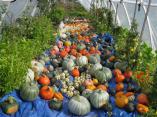
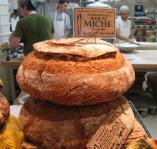
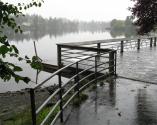
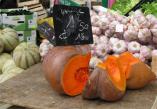
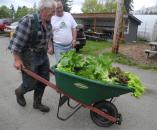

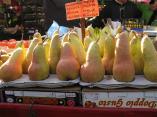
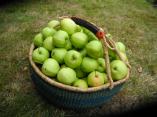
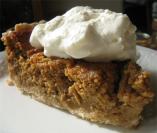
0 Responses to AWP: The madness begins